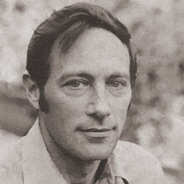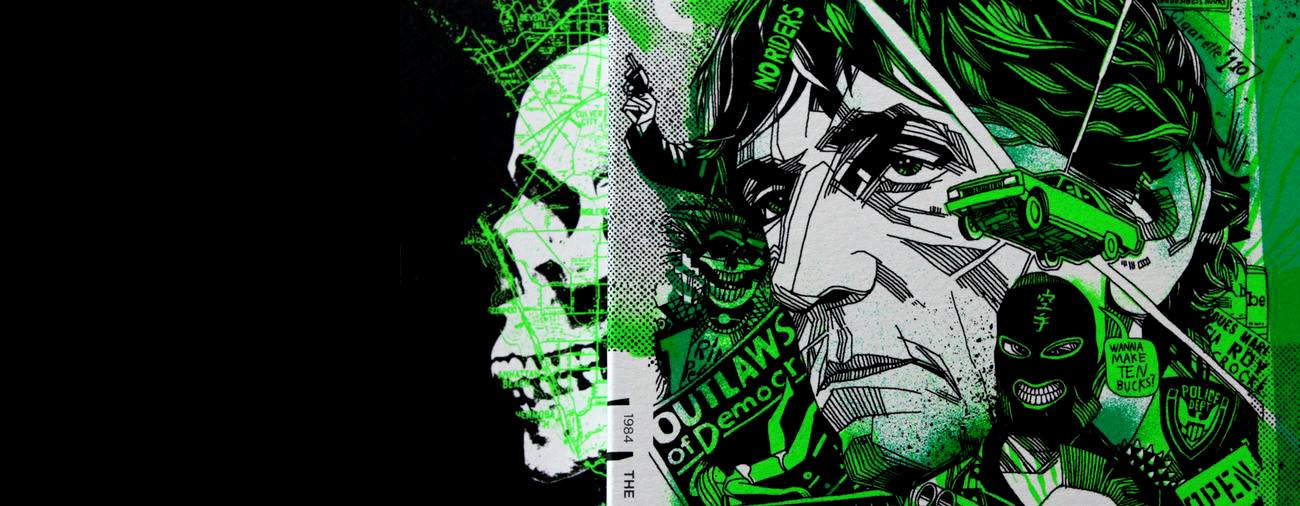by John E. Mack, M.D.
February 18, 1985
There have been a number of films in the last two years such as The Day After, Testament, The Road Warrior and Threads – that confront the threat of nuclear war by providing visions of life after the weapons have been detonated. But it occurred to me while watching Repo Man (the title refers to the employees of a company that repossesses cars) that we live in a post-nuclear world even though the bombs have not gone off. Nuclear weapons are taking a moral, spiritual, psychological and physical toll.
In the film the character of J. Frank Parnell, a middle-aged scientist, is first seen mysteriously driving a 1964 Chevrolet Malibu across the Southwestem countryside. In the car trunk are four dead extraterrestrial aliens whose matter is capable of disintegrating – in a blast of heat and radiation – anyone who opens the lid, leaving only their boots smoking on the road. The driver weaves along the highway, sweating and drained, as the heat from the matter in the trunk penetrates the car.
Parnell tells Otto, the troubled young punkish hero of the film, in anguished tones that his mind is eroding. He reveals that he has worked on designing the neutron bomb, which drove him mad, after which his project was canceled and he was lobotomized. The neutron bomb, Parnell says, destroys people and leaves buildings standing. “Fits in a suitcase. No one knows it’s there until blammo! Eyes melt, skin explodes. Everyone dead. It’s so immoral, working on the thing can drive you mad.” As Parnell deteriorates further mentally, the heat from the aliens in the trunk exhausts his body until finally he dies, discarded on a bench.
The movie is set in the post-industrial ruins of downtown Los Angeles amid uncollected garbage, streets littered with trash and debris, deteriorating buildings, and discarded appliances and industrial equipment. Figures in white space suits, asceptically walled off from contamination, pick up the drunk and dead bodies that fall in the streets.
The moral code of the Helping Hands Acceptance Agency, the gang that repossesses cars, stealing them “from dildos who don’t pay their bills,” parallels the ethic of the neutron bomb. Cars are not to be damaged but people die meaninglessly, or are murdered without a thought in order to obtain a profitable object. No one seems to care much. “Not many people have a code anymore,” one of the repo men says. Kill or be killed is the dominant ethic. Middle-class punks with bizarre Mohawk haircuts or shaved heads commit crimes for the fun of it, and zombie-like cultists spout forth a variety of formulas for salvation in a world that is out of their control.
Repo Man depicts the physical and moral desecration that results from perpetually committing the planet’s resources to nuclear annihilation instead of to the benefit of mankind. We now even seem to have post-nuclear war zones in New York, Los Angeles and other cities, as whole neighborhoods, sections of our nation that the new prosperity has passed by, disintegrate for lack of basic resources. The poor must do without adequate medical care, and infant death rates rise as health centers close and billions more are devoted to instruments of destruction. The increasing number of homeless in our cities have become the refugees of a potential war for which we are mortgaging our humanity.
In New York recently four mid-town buildings, including two single-room-occupancy hotels that formerly housed poor people, were demolished without a city permit. The motive reportedly was to beat a legislative deadline that would have placed a moratorium on profitable luxury conversion of such properties. Since apparently no attempt was made to disconnect water and gas lines, much of the block – and the people in it – could have been blown away.
As our young people grow older, many become afraid that they may have nothing to look forward to. They are uncertain about making lasting commitments to a future that they doubt they will ever see. For one rock-music group, the Sex Pistols, “no future,” a line from one of their songs, became virtually a motto.
When governments take the lead in planning the systematic murder of millions of innocent people, all other destructive behavior may become permissible. The justification for this – the activity of another nuclear superpower – seems inadequate, especially as the proliferation of nuclear weapons does little to change what is deplored about the alien power’s system or intentions. The nuclear winter is already here; it is a cold winter of the soul. The bombs have not gone off, but are nevertheless affecting our moral and spiritual lives.
A film such as Repo Man reveals to us the degraded human landscape surrounding us. It does not have to be this way. We can still become aware of the violence that we are inflicting on ourselves as we threaten to destroy our enemies and our planet. It is not too late to take responsibility with the Soviet Union and other countries for the world that we are creating. The risk of going on as we are is that the loss of caring may permit the last destructive act.
References
Schanberg, Sydney. “Gold on 44th Street”, New York Times, Jan 12, 1985, p.21
“White-Collar Vandalism on 44th St”, New York Times, Jan 12, 1985 p.20
-
 John E. Mack, M.D. was a Pulitzer Prize-winning author and professor of psychiatry at Harvard Medical School.
John E. Mack, M.D. was a Pulitzer Prize-winning author and professor of psychiatry at Harvard Medical School.
© 1985 John E. Mack
Originally published in the Los Angeles Times.
A line has been edited: “A film such as Repo Man reveals to us the degraded human landscape surrounding us” originally included the words, “even if this is not its intention”. This was removed because there is no doubt that writer/director Alex Cox intended for the film to be a commentary on “the degraded human landscape”, so to suggest that it may have been unintentional is unfair.
Illustration: The BluRay/DVD of Repo Man available from Amazon.com, cover art by Jay Shaw
